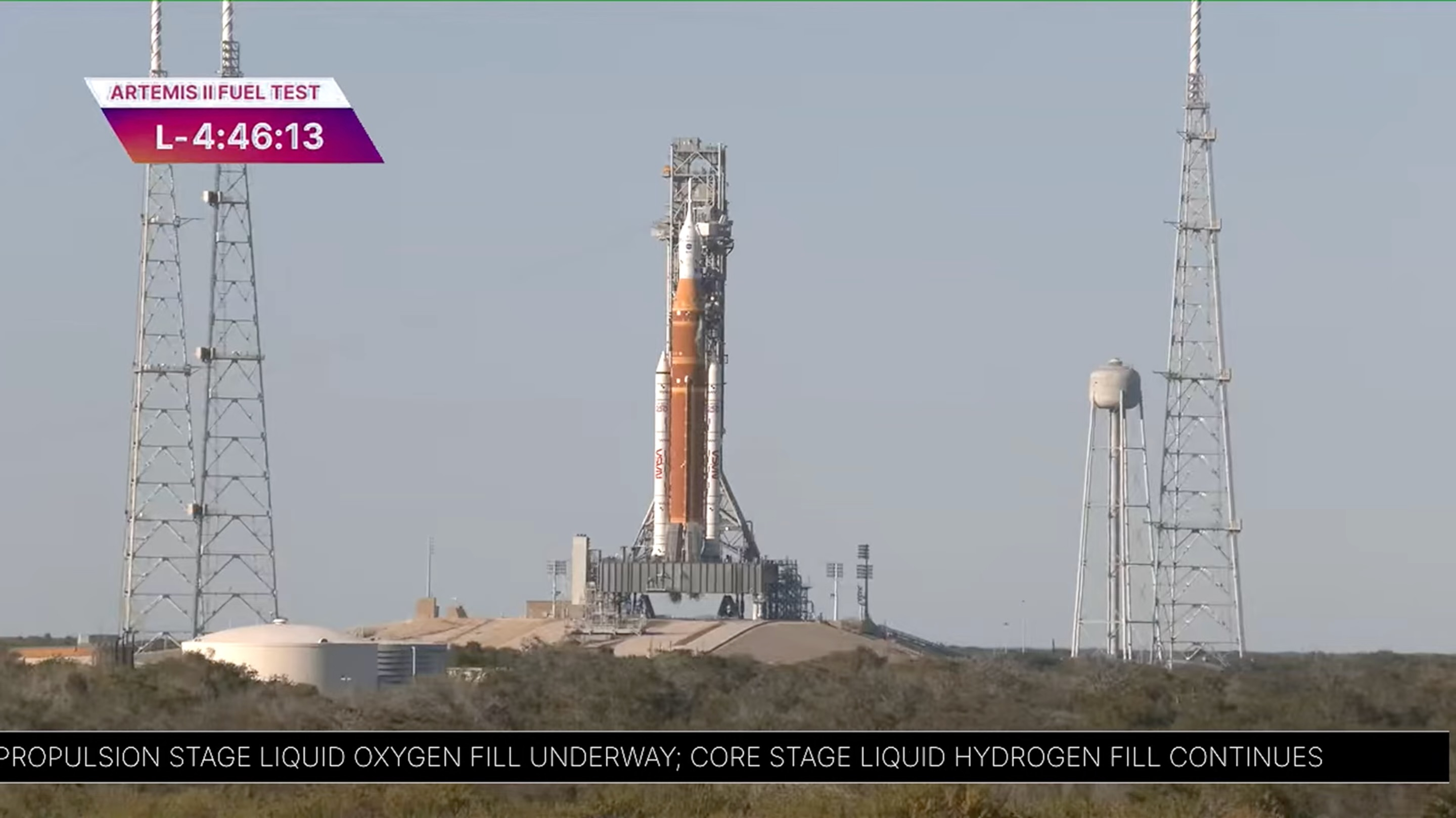Scientists To Voice Budget Concerns at NASA Advisory Council Meeting
Scientistsunhappy with NASA's budget priorities will get a chance to share their viewswhen the U.S. space agency's newly restructured science advisory subcommitteemeets for the first time May 3-4.
NASAAdministrator Mike Griffin overhauled the agency's advisory council last year,eliminating a number of standing committees and placing the streamlinedstructure under the leadership of former U.S. senator and Apollo astronautHarrison Schmitt. Though the full NASA Advisory Council held its inauguralmeeting last November, NASA officials had no science advisory subcommittee toturn to for guidance last year when they were building the agency's 2007 budgetrequest.
NASA'sbudget request has been roundly criticized by the science community.
"From myexperience, I cannot recall a budget request that has resulted in moreconsternation and outcry from the science community than this one," Lennard Fisk, chairman of the National Academy of Science'sSpace Studies Board and also a member of the NASA Advisory Council, wrote inthe board's most recent quarterly newsletter. "The consternation results inpart from a confrontation with reality. The science budget of NASA has grownmore rapidly than the agency's budget as a whole since the mid-1990s. This isunsustainable. However, what is a surprise and a disappointment is how abruptand draconian has been the downward adjustment to science."
After beingpromised that their share of the NASA budget would continue to grow even as theagency embarked on an expensive new human space exploration initiative,scientists got a rude awakening in February when NASA unveiled a 2007 budgetrequest that would hold science spending essentially flat at around $5.3billion annually through the end of the decade. A number of science missionshave been deferred or canceled, and funding for scientists engaged in researchand analysis of data from NASA's existing scientific satellites has been reducedsignificantly.
Griffin,who is scheduled to be on hand to start the two-day meeting at the Universityof Maryland Inn and Conference Center in Adelphi, Md., said April 25 he seesthe meeting as "an opportunity to get science community feedback on what theywould like the shape of the program to be given the kind of top line we arelooking at."
NASA willhear not only from its formal panel of scientific advisors but from members ofthe general public as well. The first half-hour of the second day of the meetinghas been set aside for citizens to give three-minute presentations on what theylike or do not like about NASA's proposed science budget. Speakers have to signup the evening before.
Breaking space news, the latest updates on rocket launches, skywatching events and more!
"What Iexpect to get is some community feeling for what's important given the top lineof $5.33 billion in the NASA budget, which is in fact a 1.5-percent increasefrom last year but not as much as the science community had been previously ledto expect," Griffin told Space News. "...We made our choices in the budget. Manyhave disagreed with those choices."
Griffin hassaid previously that NASA is willing to make adjustments to its sciencespending plan provided a fairly clear consensus emerges on what the agencyshould do differently. "If there is a competing trend in one direction oranother I would be heavily motivated to go where they want us to go," Griffintold reporters during a mid-April teleconference. "If there is a cacophony of opinions ... thenwe will probably stick with what we've got."
KevinMarvel, executive officer of the American Astronomical Society, said in anApril 25 e-mail that the science community as a whole is "working together thisyear like never before.
"Since theproposed cuts and the proposed out-year budgets affect us all, we have reallycircled the wagons and are shooting outward. The culprits are a limitedtop-line NASA budget and ongoing costs for shuttle and station."
Marvel saidhe was glad to see that the restructured NASA Advisory Council's sciencesubcommittee is finally ready to meet, attributing what he called NASA's "poorbudget decisions" to "a lack of a functioning advisory committee structure thispast year."
Asked if hethought the science community's unity would hold up if NASA's top line does notgrow to allow more science spending, Marvel replied, "I think those questionswill be answered during the sessions on May 3 and 4 ... right now we know thatthe top line is not enough ... to cover what we were planning on doing, let alonethe new things."
NASAspokesman Dwayne Brown said the meeting is meant to fulfill commitments made byGriffin and NASA Associate Administrator for Science Mary Cleave "to create anopportunity for the science community to assess the mix of investment withineach of the four major science areas among research and analysis and large andsmall missions."
Brown saidany recommendations for "changes in the mix" would be considered as NASAprepares its 2007 operating plan and 2008 budget request. The science advisorysubcommittee, he said, is expected to convey any recommendations it might havein a letter to Schmitt by the time the full NASA Advisory Council meets againMay 17-18.
NASA alsois expected to receive by then a written report from the Space Studies Board'sAd Hoc Committee on Balance in NASA's Science Programs. Space Studies BoardDirector Marcia Smith said April 28 that the committee expects to finish andsubmit its report in early May.
Meanwhile,the Tucson, Ariz.-based Planetary Science Institute released survey resultsApril 24 showing that 88 percent of the scientists queried ranked NASA'sresearch and analysis programs as their first or second funding priority. Thesurvey, conducted in collaboration with the University of Arizona's Lunar andPlanetary Laboratory, the SETI Institute of MountainView, Calif., and the Space Science Institute of Boulder, Colo., was completedby more than 1,000 U.S.-based planetary scientists, or about half thecommunity, according to Mark Sykes, director of the Planetary ScienceInstitute.
Brian Berger is the Editor-in-Chief of SpaceNews, a bi-weekly space industry news magazine, and SpaceNews.com. He joined SpaceNews covering NASA in 1998 and was named Senior Staff Writer in 2004 before becoming Deputy Editor in 2008. Brian's reporting on NASA's 2003 Columbia space shuttle accident and received the Communications Award from the National Space Club Huntsville Chapter in 2019. Brian received a bachelor's degree in magazine production and editing from Ohio University's E.W. Scripps School of Journalism.
